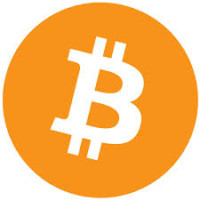What in the Heck is Bitcoin?

Bitcoin has been receiving a lot of press lately. We’ve had a few people inquire, so we thought we’d shed some light on the mystery.
Bitcoin isn’t a single company but a virtual currency supported by a peer-to-peer computer-based electronic cash system. It was created in 2009 by an anonymous person or group using the alias Satoshi Nakamoto. Unlike printed currency or coins that are minted, Bitcoin is created by “mining”– using complex software to solve complicated mathematical computations. Bitcoins are created with each solution and rewarded to the solving computer. The number of solutions that can be discovered globally per hour is limited by the system’s software code. The total number of bitcoins available to be mined is said to be limited to 21 million, with roughly 13 million already in circulation. Most users acquire bitcoins not by mining, but by either buying them via exchanges or accepting them as payment for goods and services.
Transactions made with Bitcoin, while recorded in a public log, are done anonymously and without banks. This anonymity is a draw for illicit activities and illegal drug transactions, since the currency allows one to buy or sell anything without being easily traced. In October of last year, federal agents shut down the black market website Silk Road. You may have heard in the last week, the US Marshal Service has begun to auction off the 30,000 bitcoins that were seized in that raid.
Individuals store bitcoins in a “digital wallet,” which exists either in the cloud or on a user’s computer. The wallet is a kind of virtual bank account that allows users to send or receive bitcoins, pay for goods or save their money. Unlike bank accounts, bitcoin wallets are not insured by the FDIC. These storage systems are not without risk. Wallets saved in the cloud are at risk for hackers, in fact, in February of this year, Mt. Gox, the largest bitcoin exchange lost $400 million in its customers’ digital currency and the exchange collapsed. Computer storage is also susceptible to destruction due to viruses or accidental deletion.
Bitcoin, while currently getting a lot of media attention, has many questions left to answer. It is not without major risk and has a very uncertain future. We will leave you with Warren Buffet’s take: “It’s a method of transmitting money. It’s a very effective way of transmitting money and you can do it anonymously and all that. A check is a way of transmitting money, too. Are checks worth a whole lot of money just because they can transmit money? Are money orders? You can transmit money by money orders. People do it. I hope bitcoin becomes a better way of doing it, but you can replicate it a bunch of different ways and it will be. The idea that it has some huge intrinsic value is just a joke in my view.”